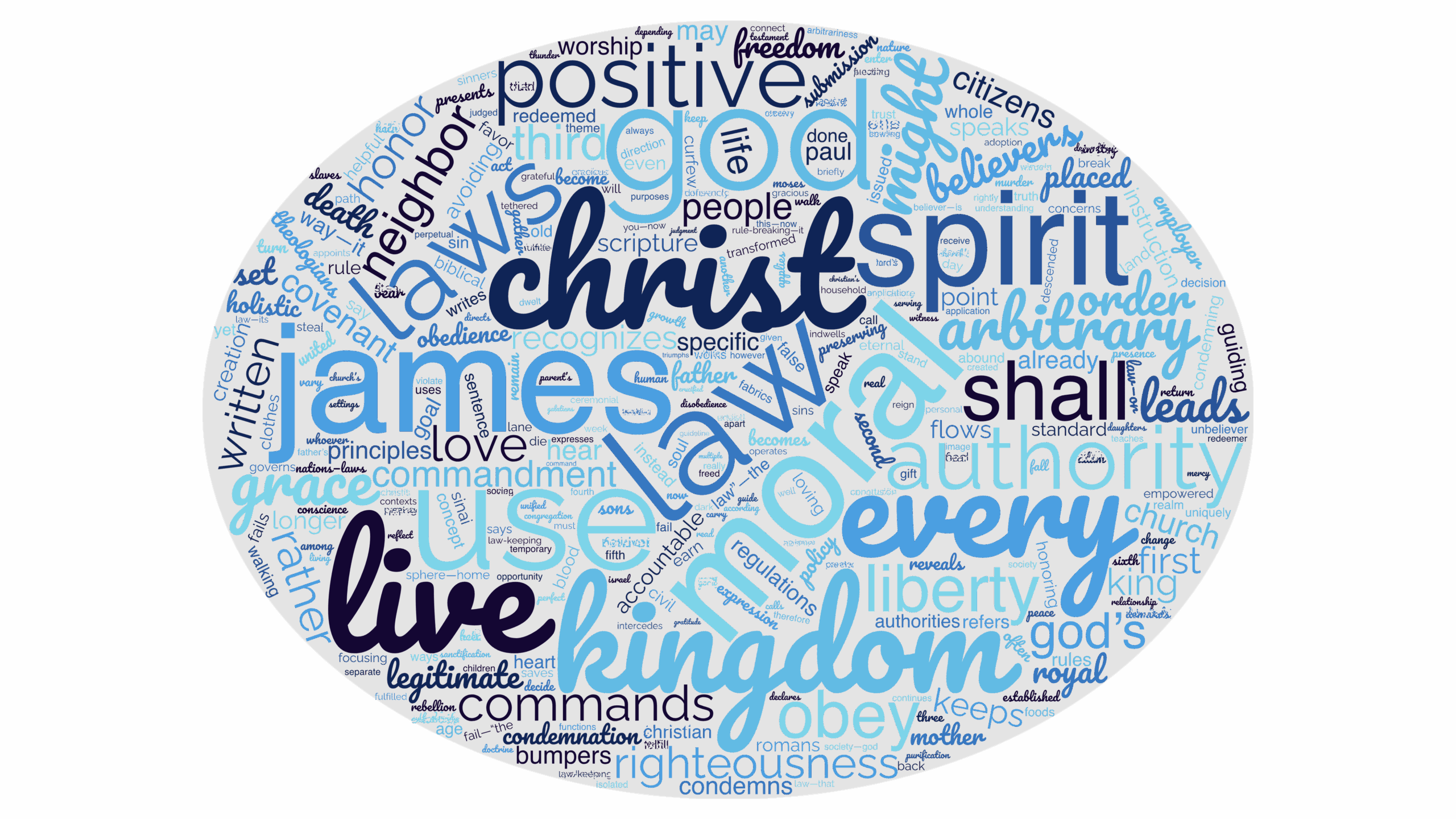The Christian and the Moral Law

Understanding the Third Use of God’s Law
We turn again to the theme of Christian growth, focusing this week on the moral law—or what theologians often call the third use of the law.
The Three Uses of the Law
Scripture presents the law of God as serving multiple purposes, depending on who is under it and in what covenant they stand.
- The First Use – The Law as Condemning
The first use applies to the unbeliever. It declares, “Do this and live,” but for those who fail—“The soul that sins shall die.” It is, as Paul says, a “ministry of death.” This law demands perfect, perpetual, and personal obedience. Because we are sinners descended from Adam, this use of the law condemns rather than saves. - The Second Use – The Ceremonial and Civil Laws of Moses
This refers to the Old Testament regulations that set Israel apart from the nations—laws about foods, fabrics, and purification. These were temporary, given because God’s presence dwelt uniquely among His people in the land. - The Third Use – The Moral Law for the Believer
This is the eternal moral standard written on the human heart from creation. It speaks in every age: “You shall not murder. You shall not steal. You shall not bear false witness. Honor your father and mother.” Every society recognizes these principles because the law is written on every conscience.
The Law as a Guide for the Redeemed
For the Christian, the moral law no longer speaks condemnation but direction. We do not hear it saying, “Do this and live,” but rather, “Christ has done this for you—now walk in His ways.”
A helpful image is that of bowling with bumpers: the bumpers do not change the goal but keep the ball in the right lane. The moral law functions this way—it keeps believers on the path pleasing to God.
The Law in the Kingdom of Christ
James 2 refers to this moral standard as “the royal law”—the law of the King. Every kingdom has a king, a realm, and a people. Christ is the King, His people are the citizens of His kingdom, and His law governs their life.
We enter this kingdom not by law-keeping but by the blood of Christ, who clothes us in His righteousness and indwells us by His Spirit. The law therefore becomes the rule of life for those already redeemed.
As James writes:
“If you really fulfill the royal law according to the Scripture, ‘You shall love your neighbor as yourself,’ you are doing well.” — James 2:8
This law reveals the heart of the kingdom: love for God and neighbor under the gracious reign of Christ.
Positive Law and the Moral Law
We briefly consider the concept of positive law—that is, laws or rules created by legitimate authority for specific contexts.
A parent might say, “Be home by dark.” A congregation might decide, “We gather for worship at 10:30.” These are not eternal laws but applications of moral principles. The parent’s rule flows from the fifth commandment (honor your father and mother) and the sixth commandment (preserving life). The church’s decision flows from the fourth commandment (honoring the Lord’s Day).
Such positive laws carry real authority when issued by those whom God has placed over us. Disobedience to them is not merely rule-breaking—it is rebellion against the order God has established. Yet these laws must always remain tethered to the moral law and not become arbitrary or self-serving.
The Holistic Nature of the Law
James continues,
“Whoever keeps the whole law but fails in one point has become accountable for all of it.” — James 2:10
The law of God is holistic. It is not a set of isolated commands but a unified expression of love to God and neighbor. To break one point is to violate the spirit of the whole.
However, this does not return believers to the first use of the law, which condemns. Instead, James calls it “the law of liberty” (v. 12). In Christ, we are freed from condemnation and empowered by the Spirit to obey.
The Law of Liberty
The “law of liberty” is not freedom from obedience but freedom to obey. Christ has fulfilled the covenant of works on our behalf. Now, united to Him, we live out the moral law as grateful sons and daughters.
Paul expresses the same truth:
“Through the law I died to the law, so that I might live to God. I have been crucified with Christ.” — Galatians 2:19–20
And again in Romans 8:
“You did not receive the spirit of slavery to fall back into fear, but you have received the Spirit of adoption as sons.” — Romans 8:15
We obey not to earn favor but because we already have it. The Spirit leads us to love God’s commands, and even when we fail, Christ intercedes for us.
Avoiding Arbitrary Authority
A practical application of this doctrine concerns authority and submission. In every sphere—home, church, and society—God appoints legitimate authorities. Their rules are not arbitrary when they reflect His moral order.
A curfew, a workplace policy, or a church guideline may vary between settings, but the believer recognizes that Christ has placed each of us under specific authorities for our good. We trust His providence even when another household or employer operates differently.
To separate positive law from the moral law leads to arbitrariness; to connect them rightly leads to peace and order.
Living as Those Under Grace
The Christian’s relationship to the law is transformed. We are no longer slaves trembling under the sentence of death but children walking in the Father’s wisdom. When we read biblical commands, we hear not thunder from Sinai but the loving instruction of our Redeemer.
We obey, not that grace may abound in sin, but that grace may abound in righteousness. Every command becomes an opportunity for gratitude and worship.
Conclusion
The third use of the law—its moral, guiding use for the believer—is a gift of grace. It reveals Christ’s will, directs our sanctification, and teaches us how to live as citizens of His kingdom.
We do not hear “Do this and live” but “Christ has done this—now live in Him.”
“So speak and so act as those who are to be judged under the law of liberty… for mercy triumphs over judgment.” — James 2:12–13



Leave a Reply